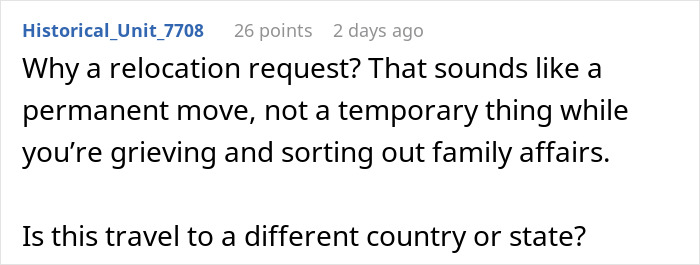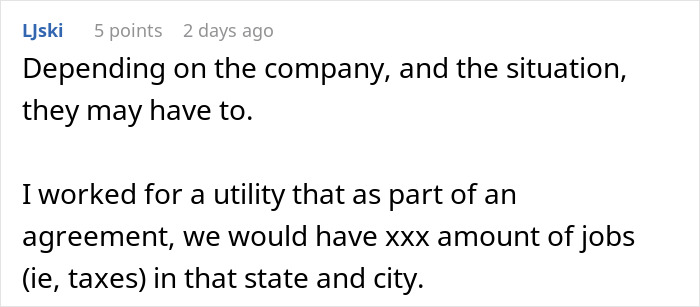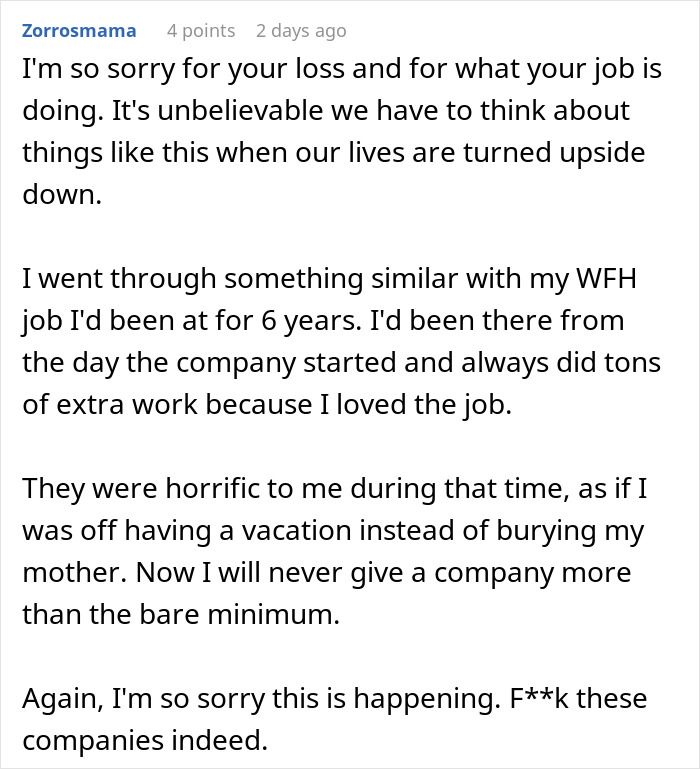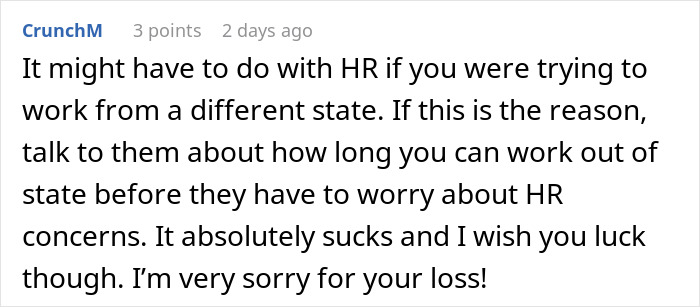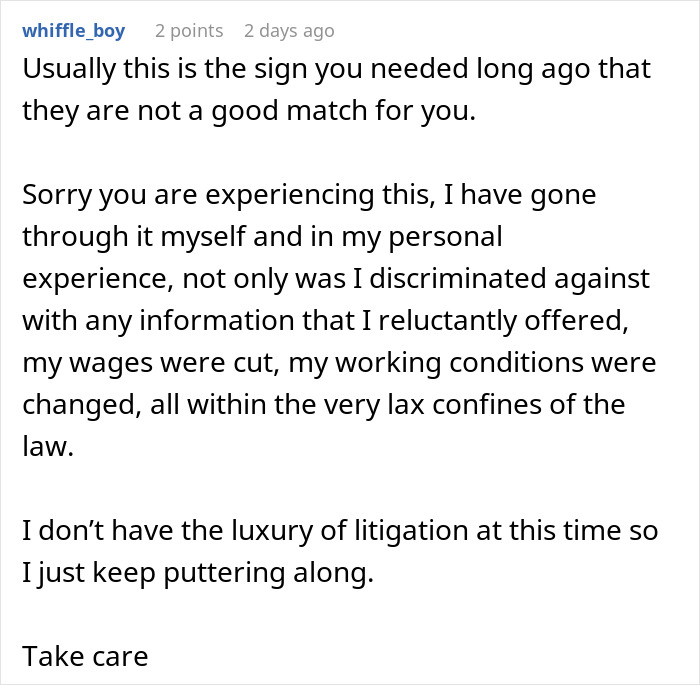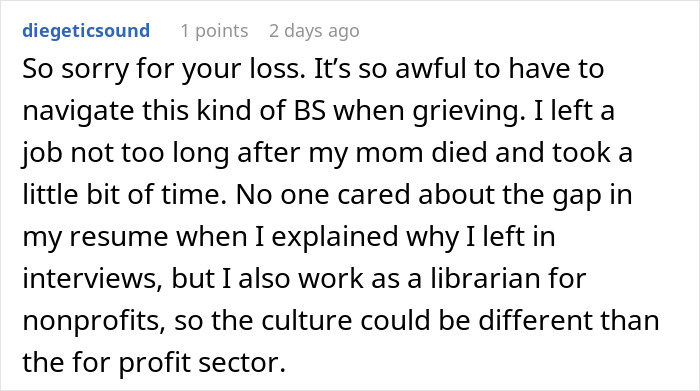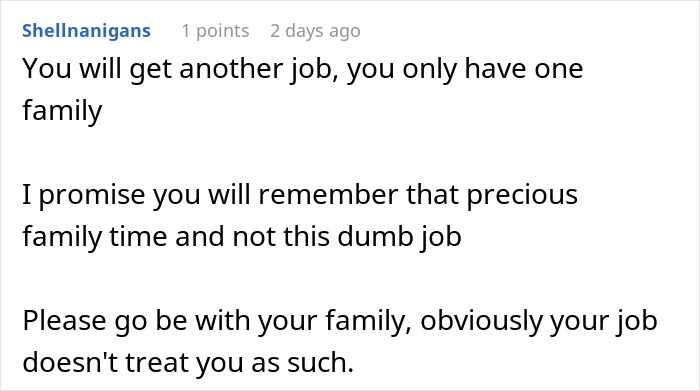Working remotely has never been this easy and omnipresent. In August 2023, 12.2% of all workers in the U.S. worked from home and more than 4.7 million worked remotely at least half of the time. Yet not all employers are so understanding when it comes to letting their workers do the job remotely.
Some even don’t bend the rules when tragedy strikes in the family. This person’s company denied them permission to work from home after their mother passed away. Angry and disappointed, the person took to the r/antiwork subreddit to share their story.
To find out more about what a person could do in this situation, Bored Panda reached out to Louise Carnachan. She’s an organization development consultant and award-winning author of Work Jerks: How to Cope with Difficult Bosses and Colleagues, and she kindly agreed to lend us her expertise. Read her insights below!
More info: Louise Carnachan | LinkedIn | Facebook
An employee asked to work remotely while grieving their mother, but their company said ‘No’

Image credits: Thought Catalog / unsplash (not the actual photo)
Irritated and fed up, the worker shared their employer’s absurd take online
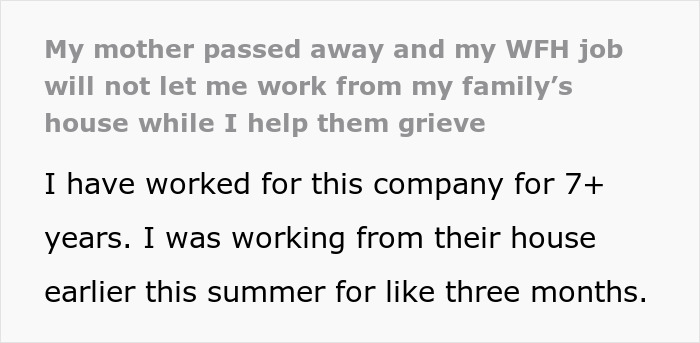
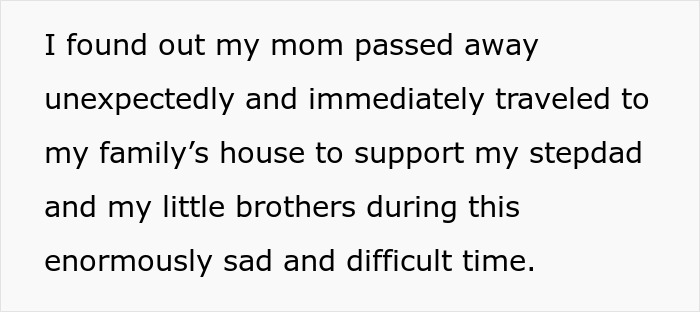

Image credits: Ivan Samkov / pexels (not the actual photo)
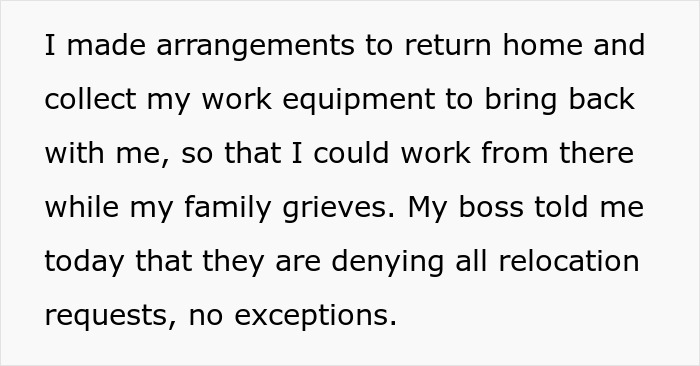


Image credits: Sora Shimazaki / pexels (not the actual photo)
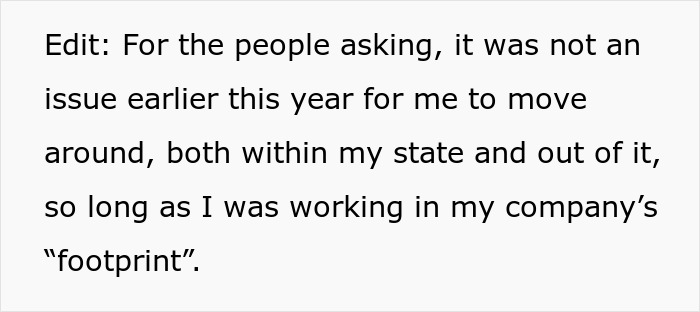

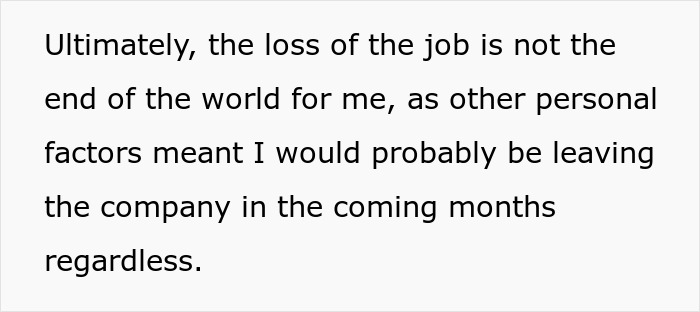
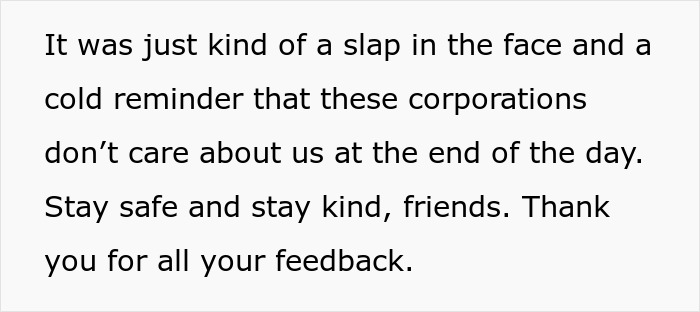
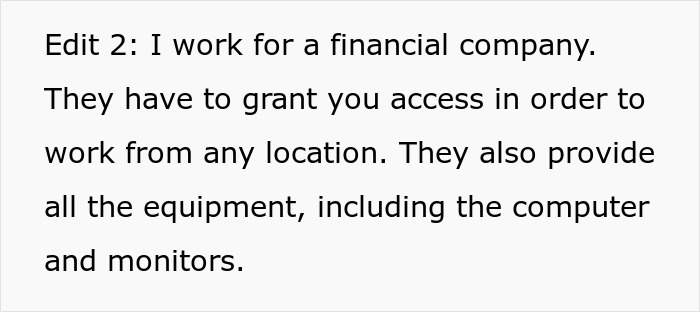
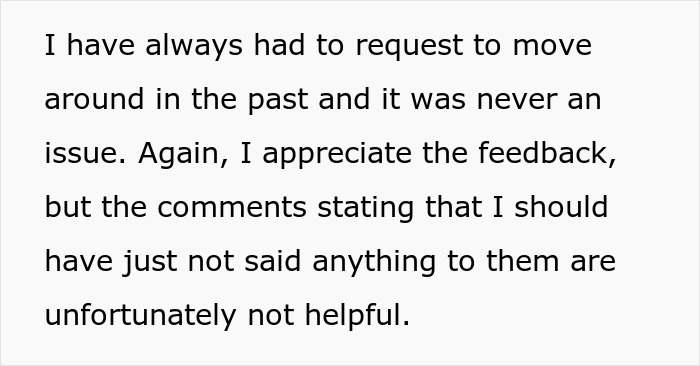
Image credits: tr3mbling
Despite the company’s bereavement policy, they come across as heartless in this situation

Image credits: Kaboompics.com / pexels (not the actual photo)
Organizational expert Louise Carnachan tells Bored Panda that no matter a company’s size, most have a bereavement policy that should give employees a certain amount of days off after a loved one passes.
“How much time off may depend on which family member it was, for example, a parent or child vs. sibling,” Carnachan explains. “Given that it was the mother and they worked in a financial institution, I assume PTO was provided although it may have only been a few days.”
However, sometimes managers may be discreet about bereavement benefits, like how much time off an employee can get and whether there are any additional accommodations. “It sounds like the manager in this instance was following a strict relocation policy,” Carnachan notes.
“But it’s not clear whether the employee had moved to an area that is not part of the company’s ‘footprint’—or even whether the employee and boss had spoken in advance about the necessity for remote work and a timeframe. Regardless, the manager in this situation comes across as heartless,” she observes.
If a company has more than 50 employees, they must offer FMLA (Family and Medical Leave). “A company’s bereavement policy may be insufficient to handle the fallout of a [passing], however, a [passing] may not fulfill the requirements to access FMLA,” Carnachan explains.
‘Since specific conditions must be met to access it, speaking to the company’s FMLA administrator is important,” she adds.
“In addition, some states have leave laws that go beyond FMLA. While FMLA protects an employee from losing employment under specific conditions, it is unpaid leave. The employee may use their PTO while on FMLA or the employer may require it be used.”
WFH is not the same as bereavement policies and FMLA, but it’s likely to stay for a long time
The author emphasized how they had worked from home in the past and couldn’t understand why the company wouldn’t let them do it again in time of need. Louise Carnachan notes that bereavement policies and FMLA are different from WFH policies. “They are all separate issues,” she says.
With big companies like Amazon asking their employees to return to the office full-time, many have started to wonder whether this will trickle down and result in a crackdown on WFH policies on a larger scale.
“WFH has a long history of contentiousness,” Carnachan notes. “Those who support it say productivity is higher outside the office with fewer distractions and they have better work/life balance without a commute. Additionally, there can be flexibility in when one is working.”
“Those who decry WFH say that it erodes company culture, teams don’t work as well together and informal communication that leads to innovation doesn’t naturally arise, among other things,” Carnachan adds.
“The problem is it’s very hard to quantify anything but task completion. We don’t have good data on the effects of in-person communication or building relationships and how that affects the bottom line—and it’s impossible to quantify missed opportunities.”
“Even with the ups and downs of remote work we read about, it’s likely that a range of hybrid work will be the norm for many businesses,” Carnachan believes.
“It’s unbelievable we have to think about things like these when our lives are turned upside down,” people commented


